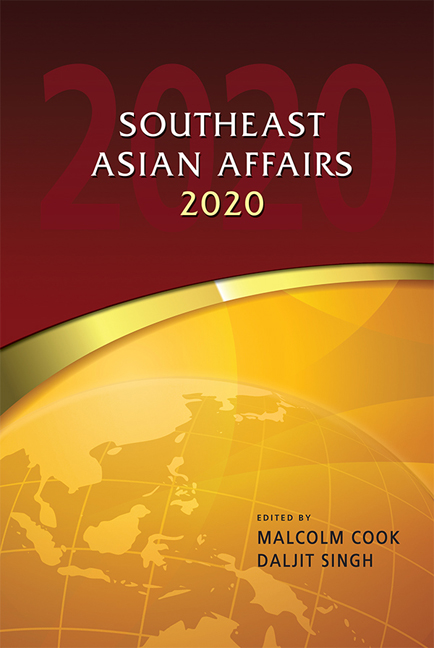Vietnam in 2019: A Return to Familiar Patterns
Published online by Cambridge University Press: 24 November 2020
Summary
While Vietnam is often proclaimed to be at a “crossroads”, in retrospect the period between 2014 and 2016 was genuinely an inflection point. Given heightened anxiety over Chinese assertiveness in the South China Sea and a desire to join the Transpacific Partnership (TPP), Vietnam signalled a greater desire to side with the United States than ever before. This led to a flurry of high-profile visits of Vietnamese leaders to the United States as well as an unprecedented agreement to allow independent trade unions in exchange for TPP membership. It also led to a reduction in political repression.
With President Donald Trump's decision in 2017 to pull out of the TPP, the dynamics have changed. Nearly three years after that decision, Vietnam has returned to its previous political and foreign policy orientations. As this chapter will discuss, the top contenders for power have returned to the previous hedging strategy of maintaining friendly ties with the United States while avoiding antagonizing China. The most likely successors to General Secretary Nguyen Phu Trong have maintained a generally balanced approach to political reforms and alignment with the United States. In short, it does not appear that there will be an elite-led liberalization on the horizon. If there is a question about significant elite-led political reforms in Vietnam, it is whether it is going to further centralize power in the hands of the party. On this question, we also believe that Vietnam is likely to revert to its previous collective-leadership pattern.
Although party-led political reform is largely off the table, this does not mean social pressures that could possibly force change from the outside have remained static. A number of important developments continue to challenge the regime. On the South China Sea, Vietnam's relationship with China continues to represent a volatile mobilizing issue for collective action. The environment also remains a potent social concern. Additionally, social media continues to inject a new dynamic into these issues, providing both the opportunity for citizens to challenge the regime but at the same time allowing the regime to respond more quickly and shift blame to local governments.
- Type
- Chapter
- Information
- Southeast Asian Affairs 2020 , pp. 393 - 410Publisher: ISEAS–Yusof Ishak InstitutePrint publication year: 2020



